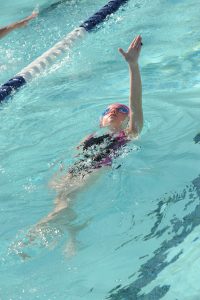The Southern California News Group just published a devastating indictment of USA Swimming and their inaction in keeping children safe from abusive coaches. On the heels of the Larry Nassar trial, which has uncovered a similar culture of complacency at USA Gymnastics, it can be daunting and scary for any parent to make the decision of enrolling their child in a swim program. Indeed, how do you choose a swim program (or any athletic endeavor) and trust that your child or children will be safe?
 The answer is education and advocacy. First, talk to your children about the range of behaviors that constitute verbal, physical, emotional, and sexual abuse. Make sure they understand what to do in an uncomfortable or threatening situation and the process for reporting an incident. Second, ask your athletic team/club/organization if they have a written policy in place concerning the safety of children and prevention of abuse. Make sure it includes, at minimum, the following policies: (Adopted from Safe4Athletes Handbook)
The answer is education and advocacy. First, talk to your children about the range of behaviors that constitute verbal, physical, emotional, and sexual abuse. Make sure they understand what to do in an uncomfortable or threatening situation and the process for reporting an incident. Second, ask your athletic team/club/organization if they have a written policy in place concerning the safety of children and prevention of abuse. Make sure it includes, at minimum, the following policies: (Adopted from Safe4Athletes Handbook)
All coaches, volunteers, and staff undergo criminal background checks and/or previous employer reference checks before they are hired and allowed to work with children.
The club’s written policies should (1) clearly define coach misconduct; (2) prohibit romantic or other nonprofessional relationships between coaches and athletes; (3) define and prohibit emotional, verbal, and physical abuse, bullying, hazing, initiation rituals; and (4) prohibit all forms of sexual harassment, abuse, and violence. The club should employ an independent “athlete welfare advocate” for athletes to turn to in complete confidence to help them address concerns. The club should conduct periodic education sessions for coaches, staff and volunteers regarding professional behavior and prohibited behaviors that they must stop if observed by anyone.
As club owners, our teaching and modeling ethical coaching practices is a must to ensure a safe and professional environment for our members and staff alike. Focus on core issues like competence, integrity, professional responsibility, and respect.
Finally, make sure, as parents and guardians, that YOU know the procedures in place for reporting incidents. Don’t be afraid to advocate for your child, and to follow-up after reporting occurs to ensure that proper action is taken. Institutional change starts at the grassroots level.
Taking these simple steps to ensure your child’s safety achieves two very important things: it makes your child a less likely target for abusers, and, as mentioned above, ensures an institutional culture bent on protecting athletes. Remember, education and advocacy create positive change.
Molly is a member of our creative team, mom of four water-loving babies, and a fierce advocate for CPR training and really early swim instruction.
